'Israel killed 75 of my relatives in a single strike'
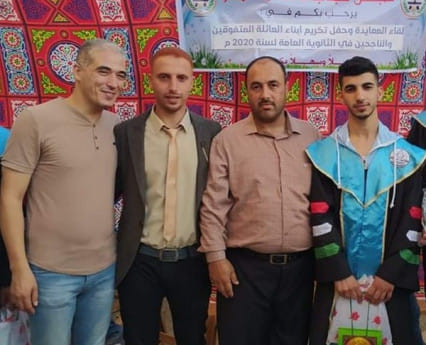
Ibrahim Saleem Kishko, a Palestinian student at Dhaka Medical College, carries with him not just the dreams of healing others, but also the weight of witnessing repeated cycles of violence in his homeland. In a conversation with Mahiya Tabassum of The Daily Star, Ibrahim offers a window into the reality of life in Gaza—a reality marked by both unimaginable loss and unwavering hope.
Could you share your experience of the conflict in Gaza?
Gaza has been my home since birth, where I lived for 20 years before leaving to study medicine in Bangladesh. Throughout those years, I witnessed multiple genocides—in 2008 during the Gaza War, then again in 2011, 2014, 2019, and 2021 before my departure. These aren't just dates to me; they represent lived experiences that words can barely capture.
In any war or genocide, there are no winners. Everyone loses. But throughout our lives in Gaza, we have witnessed and experienced how Israel seems to take pleasure in destruction and mass killings. This has been our reality.
How has the recent war impacted you and your family?
The shock of October 7 is still fresh in my mind. I was in Bangladesh; I was scrolling through social media when news of the bombings broke. Everything happened with devastating speed. Though I've witnessed many conflicts before, the scale of this one was unprecedented. The first few days were a blur of anxiety and mania; I couldn't eat or sleep, consumed by fear for my family back home—my parents, two sisters, and three brothers.
By October 30, my immediate family managed to evacuate, but fate had other plans for many of my relatives who remained in the city. That day, Israeli forces bombed our area, killing 75 of my relatives in a single strike. The death toll in my family has now exceeded 100. Among them was my uncle, who inspired me to pursue medicine.
When I speak of these losses, I know they might seem like mere numbers to others. But each number represents a person who helped raise me, someone I saw every day growing up. The thought of returning home to nothing but rubble is overwhelming and heart-wrenching. I haven't yet confronted this reality in person, and I'm unsure how I'll cope when I do.
Our family home was among the first casualties, reduced to ashes in the initial bombings in October 2023. Now, like most Gazans, we have no house to return to. The true extent of our losses—both material and emotional—will only become apparent after this genocide ends. During the conflict, people function on survival instincts only. It's only in the aftermath, when they try to return home, that the full weight of the trauma begins to surface.
Were your loved ones displaced during the war?
Our home was in Gaza City. When the Israeli military began their bombing, my family and relatives were forced to scatter, seeking safety wherever they could find it. The strikes were indiscriminate—no area was spared. Initially, my family fled to Khan Younis in the southern Gaza Strip, where a stranger opened their home to us. This act of kindness exemplifies the unity we Palestinians have among us. However, safety proved elusive. As Khan Younis came under attack, they fled to Rafah. When Rafah too became a target, they had to return to Khan Younis. In total, they were forced to relocate six or seven times since October 2023.
The cycle of displacement was relentless. Each time they would set up a basic shelter—just a tent and a makeshift toilet for essential needs—only to be forced to evacuate again. Imagine having to rebuild these basic necessities from scratch every time you move. The challenges went beyond just finding shelter; they had to endure the constant sound of warplanes, endless bombings, scarcity of food, winter cold, and summer heat. Each evacuation meant abandoning whatever few possessions they had managed to gather. There was never time to pack or prepare.
I remember one particularly harrowing incident when a bombing near my family forced them to flee in different directions. My mother and sister ran to one shelter, my brother to another with some relatives. In moments of such intense fear, when survival is the only priority, families become separated. You're running purely on instinct, seeking any shelter you can find.
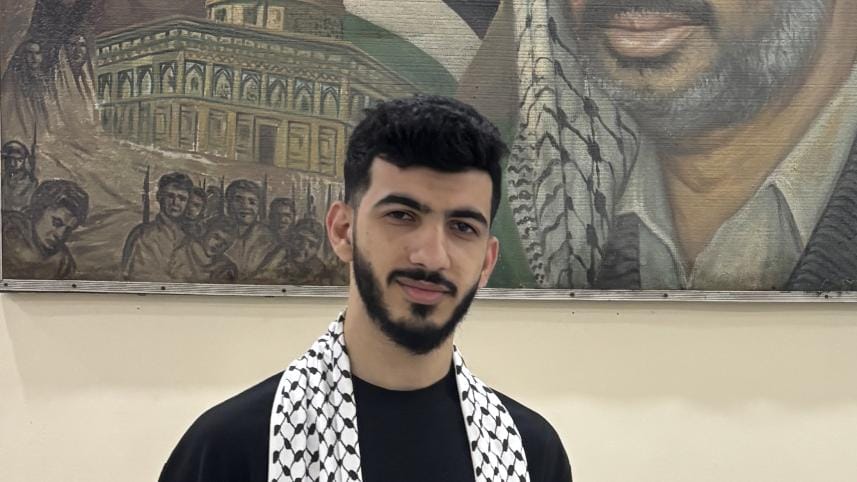
How did you cope with the uncertainty and fear during the height of the conflict?
Having lived through previous conflicts, I knew what to expect: the power cuts, the internet blackouts. But knowing what was coming didn't make it easier. My biggest worry was about being able to contact my family. During those initial days, words would fail to describe the emotional turmoil I experienced. I was trying to study for my exams, but concentration was impossible. Sleep and appetite vanished. My mind was constantly with my family in Gaza, wondering about their fate, what would happen to them. For two to three months, I had no contact with them at all. Even after that, communication was sporadic, dependent on brief windows when they could access the internet or phone networks.
How did they manage to access basic necessities like food, water, shelter or medical care during the time of displacement?
At first, Gaza had some food reserves. But as Israel tightened its blockade and restricted aid, the situation became desperate. People began rationing their meals—first to twice daily, then once, and eventually going days without solid food. Parents would go hungry so their children could eat something. It was especially heartbreaking because young children couldn't understand why there was no food—they would just cry from hunger. The situation in northern Gaza was particularly severe, where no supplies were allowed in at all. People started dying from malnutrition and starvation.
How did the international humanitarian efforts reach your community during the conflict?
The humanitarian response was severely restricted. Israel's allowance of aid was both inadequate and inconsistent. To understand the scale of deprivation, consider this: normally, Gaza would receive 60-70 aid trucks daily. Under the blockade, they limited the number of trucks and even then, many of these were bombed before reaching their destinations. We were receiving perhaps one-tenth of what Gaza actually needed. Money became worthless—the choice was simply between eating and starving. Israel's strategy appeared deliberate: they would target anyone attempting to coordinate aid distribution. It seemed they wanted to create such desperate conditions that people would turn against each other in a fight for food.
You've witnessed so many conflicts. How have they impacted your well-being?
While I've lived through many conflicts, this one was different. We've never experienced such severe restrictions on food and communication before. But the psychological impact of continuous bombing and killing has been a constant in our lives. Growing up in Gaza means living with perpetual uncertainty; every night, you go to bed not knowing if you'll wake up the next morning. This isn't just my experience; it's the reality for every family in Gaza.
For instance, my mother and sisters would prepare themselves for bed each night by ensuring they were properly covered, just in case they didn't survive the night. The thought process was, "If we die in a bombing and are pulled from the rubble, at least we'll be covered." Can you imagine living this way? Trying to sleep while drones and warplanes buzz over your head continuously?
There's a saying in Palestine that our babies are weaned to the baroods (gunpowder) of guns. Children as young as three or four witness death, bombing, and bloodshed and see corpses. How can anyone develop a healthy mental state under such conditions? This is the environment that shaped us, the reality we were raised in.
How do you perceive the role of the international community during the war?
The initial international response showed promise. Media coverage was extensive, and there seemed to be genuine concern about Gaza's situation from both Arab nations and the US. However, this narrative soon shifted, particularly in Western media, where Israel's actions were justified even as they continued to kill Palestinians. They managed to portray themselves as "victims" while being the aggressors.
As time passed, the world's attention waned. Israel actively targeted anyone attempting to document their atrocities in Gaza. While global citizens initially showed interest in helping, many gradually became desensitised to our suffering. The massacre became normalised. This indifference was deeply painful for me.
There's an unbridgeable gap between witnessing or experiencing a war and hearing about it. If you haven't experienced a war, you can never understand the true gravity of it. No amount of description can convey the feeling of losing a sibling or watching your community be destroyed. What's been shown in the media represents less than five percent of the actual suffering in Gaza. I've lived through many conflicts, but this one has been unprecedented in both scale and intensity. Nothing in Gaza's history compares to it.
What does the recent ceasefire mean for you and your community?
The ceasefire brings a glimmer of hope that the bloodshed might finally stop. Despite everything we've endured, this possibility brings joy. As a Gazan, it means I might be able to return home. It's a step towards bringing some peace into the lives of Palestinians, and we hope it marks the end of our displacement and oppression.
The impact on my family was immediate: when the ceasefire was announced, I saw them smile for the first time in one and a half years. They were finally able to eat a proper meal. The resilience of our people is remarkable. Despite the massive destruction, where every Gazan lost their home, people are already returning and beginning the process of rebuilding. They're cleaning bombed-out buildings, trying to make even a single room habitable. This is what freedom means to us: the ability to rebuild our lives, to survive under any conditions. We're hopeful the city's reconstruction will progress quickly.
Do you feel the ceasefire addresses the root causes of the conflict?
The ceasefire alone won't achieve Palestinian liberation—it will require much more effort. However, it's crucial as a first step to stop the bloodshed. I remain sceptical of Israel's commitment, given their history. Over the past 80 years, negotiations between Israel and Palestine have consistently resulted in Israel imposing their conditions without honouring their commitments. Based on this pattern, I find it difficult to trust their promises.
Despite everything, what gives you hope and strength to keep going?
As Palestinians, resilience is in our nature. We adapt to whatever circumstances we face. Yes, there is change, pain, and suffering, but the people of Gaza always find a way to rebuild their lives. We've endured genocide and generations of oppression, yet we persist.
Our faith sustains us through these challenges. We draw strength from knowing we're fighting for justice. When you're on the right side of history, fighting for a just cause, you never truly lose—you either die with dignity or achieve victory. We refuse to let anyone strip us of our dignity. Look at how differently Gazans and Israelis react to the ceasefire; we celebrate with joy despite our massive losses, while they mourn. This contrast speaks volumes about who stands on the right side of history. When you're fighting for justice, even in the face of devastating odds, you find your hope and confidence to move forward.
Follow The Daily Star Opinion on Facebook for the latest opinions, commentaries and analyses by experts and professionals. To contribute your article or letter to The Daily Star Opinion, see our guidelines for submission.




 For all latest news, follow The Daily Star's Google News channel.
For all latest news, follow The Daily Star's Google News channel. 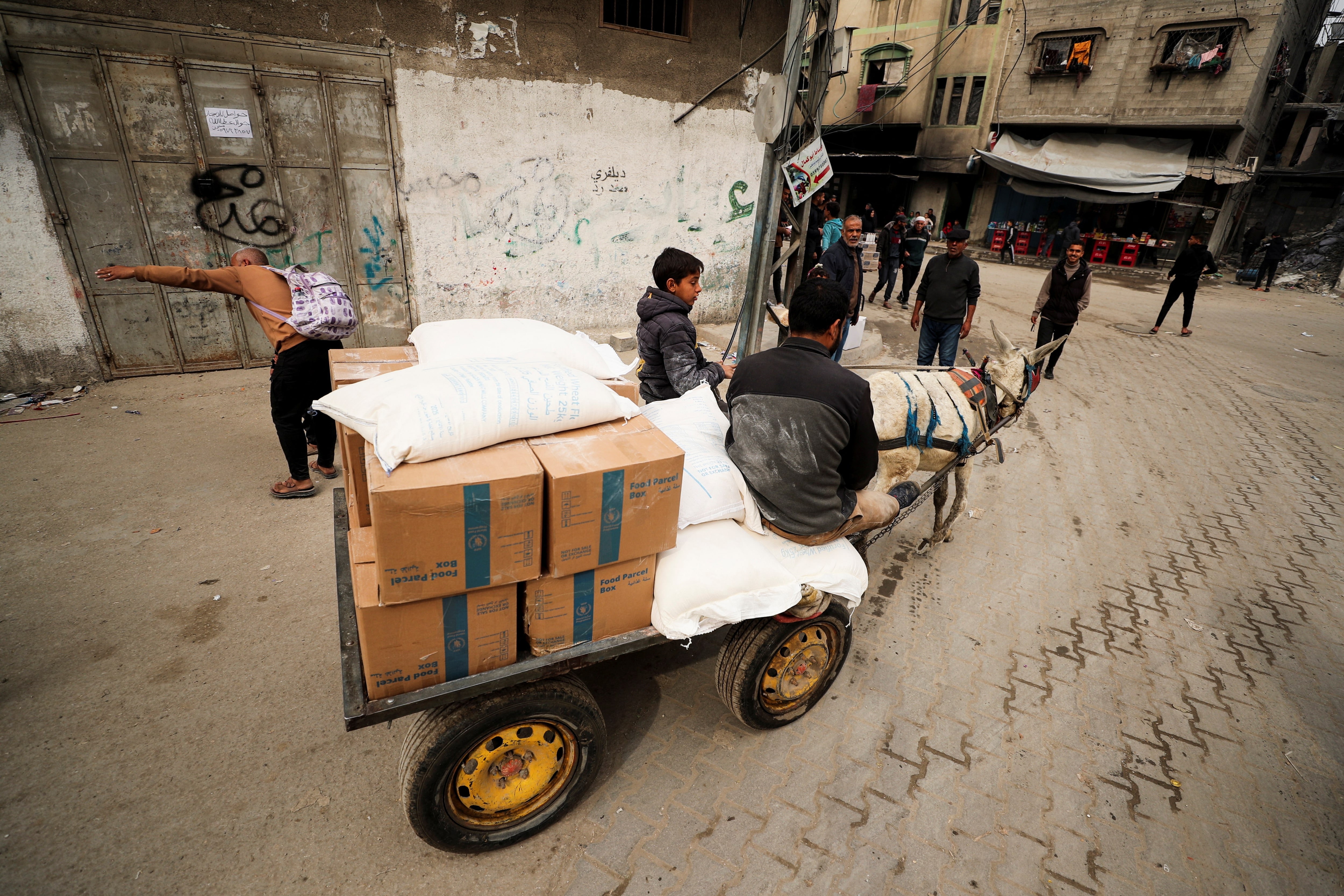
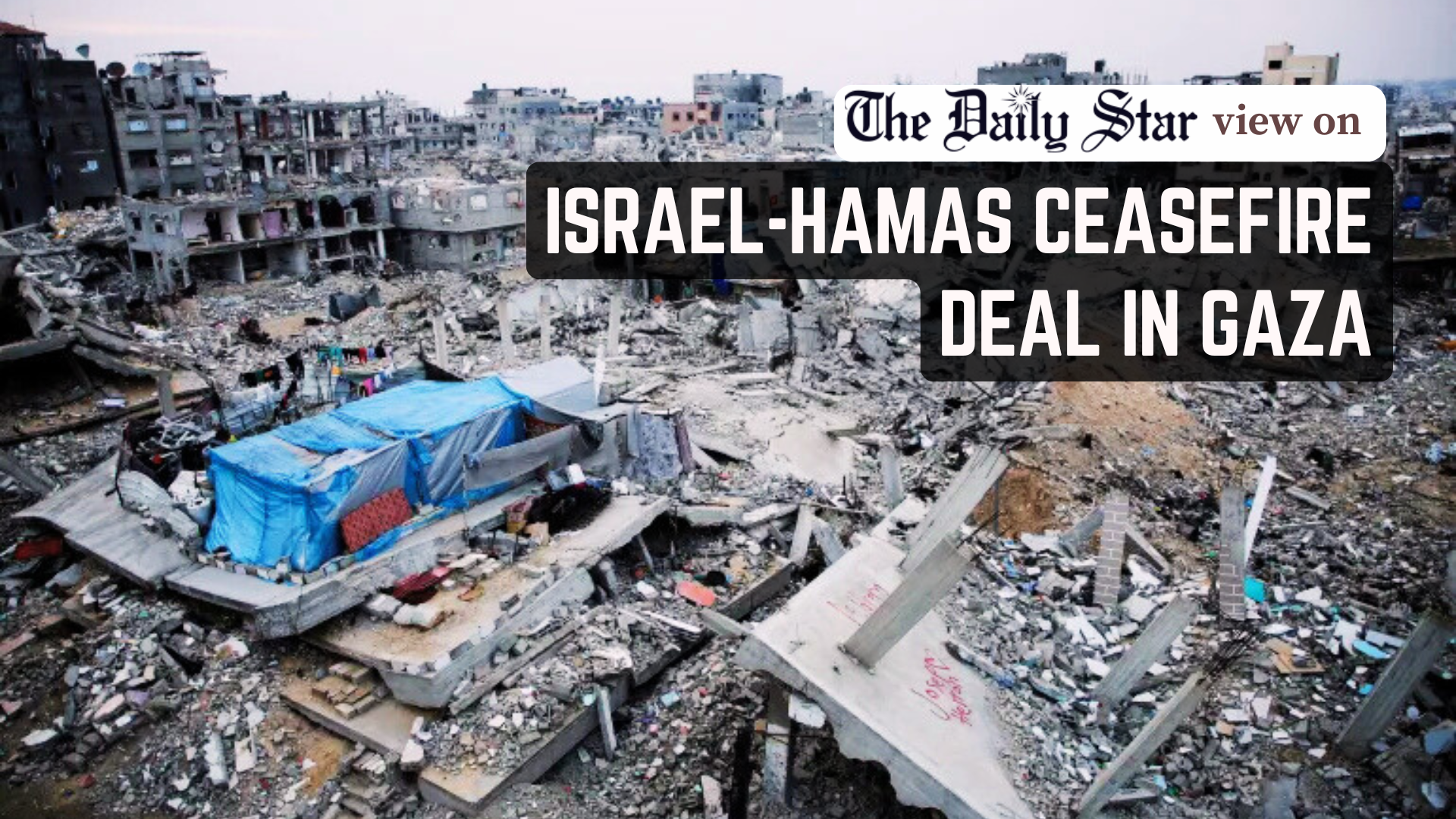
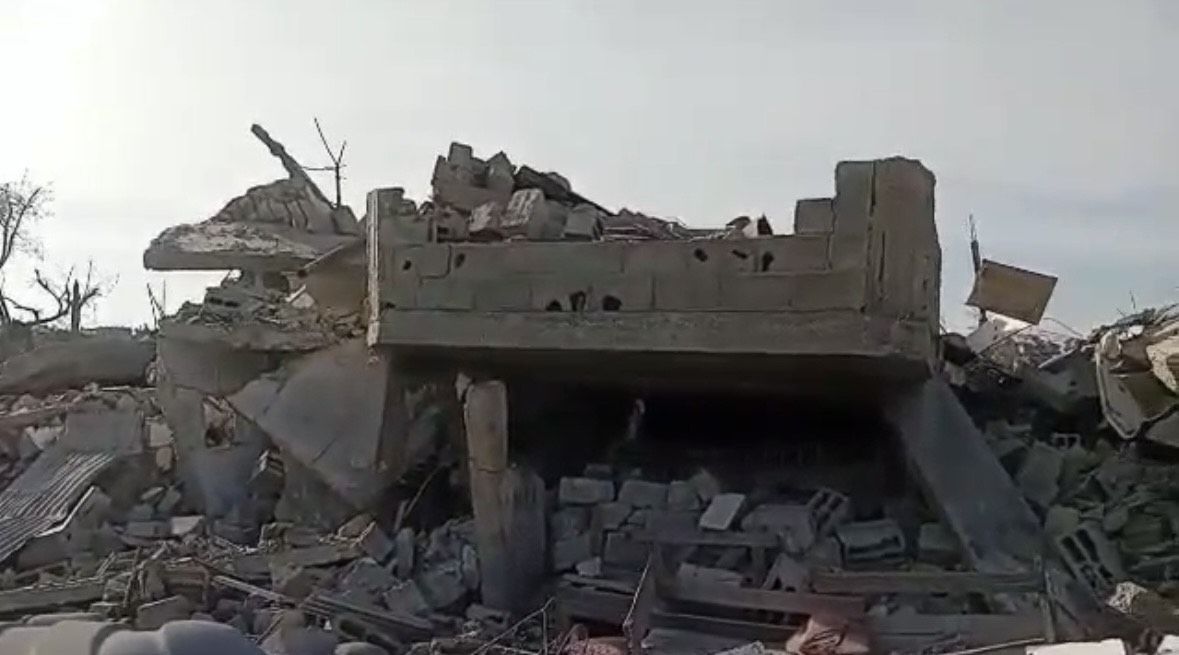


Comments